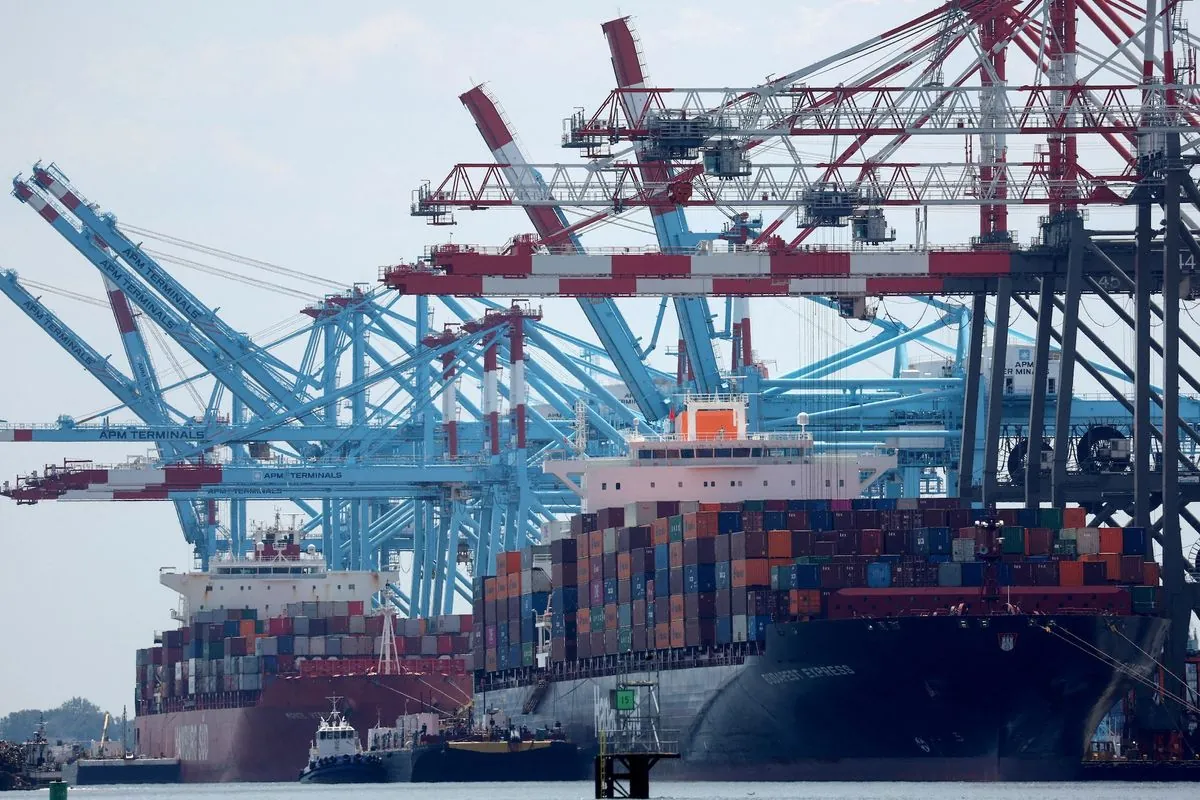A recent dockworkers' strike has halted operations at ports along the East Coast and Gulf of Mexico, potentially disrupting the global supply chain. While consumers may not notice immediate changes, experts warn that a prolonged strike could have far-reaching consequences for the economy, retailers, and shoppers.
The dispute involves the International Longshoremen's Association, founded in 1892, and the U.S. Maritime Alliance, established in 1997. Negotiations between the 47,000-member union and the companies' representatives broke down in June, with workers seeking substantial pay increases and job security guarantees against automation. The Maritime Alliance recently countered with a 50% raise offer over six years.
This labor action affects crucial maritime gateways, including the Port of New York and New Jersey, the largest on the East Coast, and the Port of Houston, the Gulf Coast's primary hub. These ports, along with others like the Port of Savannah and the Port of Charleston, play vital roles in U.S. trade.
Industry experts caution that a strike lasting two weeks or more could significantly impact the economy. Jonathan Gold, vice president at the National Retail Federation, stated:
"A one-day shutdown can take on average three to five days to recover from, and if the strike is prolonged, that compounds every day. If we go two weeks, you're looking at several months, and that could take us beyond the holidays."
The timing is particularly concerning as retailers prepare for the holiday shopping season. Analysts project consumer spending between $983 billion and $993 billion this year, but prolonged port closures could affect these forecasts.
Large retailers have been preparing for potential disruptions. Costco and Ikea reported taking preemptive measures, such as early ordering and rerouting shipments to West Coast ports. However, small and medium-sized businesses may face greater challenges.
Lisa-Jae Eggart, co-founder of 3 Mom Organics, expressed concern about potential delays in receiving essential supplies. Similarly, Danny Reynolds, owner of Stephenson's of Elkhart department store, worries about timely deliveries of wedding dresses and spring merchandise.
Experts predict that perishable goods will be the first to see price increases. Items like bananas, certain seafood, cocoa, and coffee could become scarce, as they require daily imports. The Port of Wilmington, Delaware, North America's top banana port, could be particularly affected.
As the situation unfolds, the impact may extend beyond retail. The Port of Corpus Christi, the largest export gateway for U.S. crude oil, and the Port of Baltimore, which handles more roll-on/roll-off cargo than any other U.S. port, could face significant disruptions.
The strike's effects could ripple through the global supply chain, potentially causing long-term consequences for businesses and consumers alike. As Pawan Joshi from e2open noted, "There's a domino effect. We think of this as just a port strike, but it has a potential to disrupt a lot of [the global supply chain]."
As the holiday season approaches, all eyes remain on the ongoing negotiations and their potential resolution, with hopes of minimizing disruptions to the U.S. economy and global trade.
